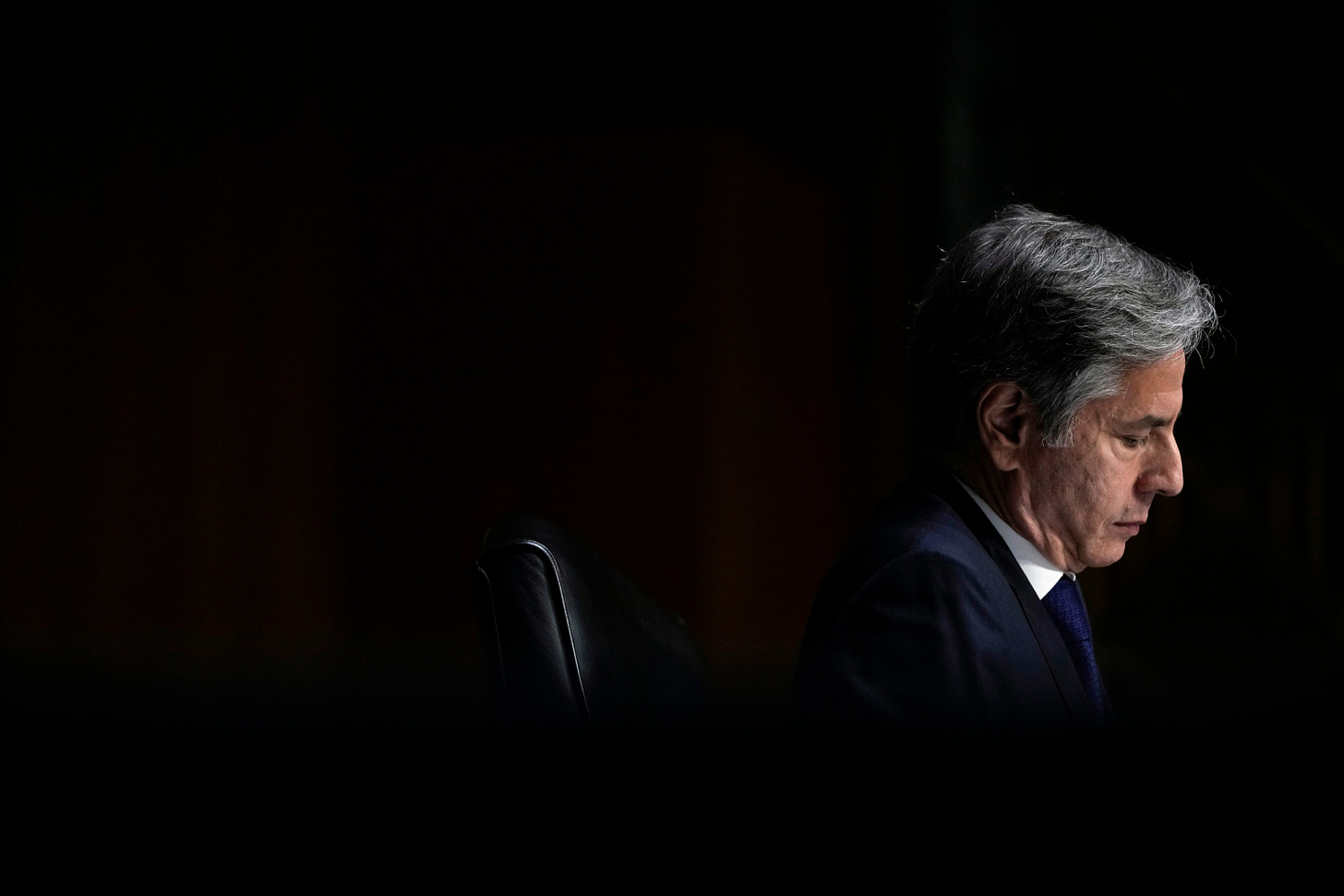
Why Did the Biden Administration Give Egypt $170 Million?
Human rights aren't at the center of the administration's foreign policy. Again.

Last week, the Biden administration confirmed the fears of human rights advocates: After emphasizing a values-based, rights-forward foreign policy, Secretary Blinken sidestepped Congressional mandates and released $300 million in military aid designated for Egypt, one of the world’s worst human rights abusers.
Legally, to release the money, the State Department could have either certified progress on human rights (as set forth by Congress) or waived the conditions on national security grounds. Instead, it did neither. Blinken, like successive secretaries before him, was not able to certify any rights progress. Nor, for the first time since the waiver was written into law, did he elect to waive these conditions on the grounds that they are necessary for U.S. national security interests. Rather, the administration exploited a loophole to grant $170 million to fund border security, counterterrorism, and nonproliferation, while holding $130 million pending resolution of narrow human rights conditions.
What the administration should have done was withhold the entire $300 million.
On the campaign trail, Joe Biden highlighted two prominent cases of individuals targeted by the Egyptian government.


In March, Secretary Blinken said that the president “has committed to putting human rights back at the center of American foreign policy, and that’s a commitment that I and the entire Department of State take very seriously.” However, even in Trump’s first year as president, the administration reprogrammed nearly $100 million in aid and withheld more aid on human rights conditions ($195 million) than the Biden administration.
To be clear, $130 million will be held pending progress on two human rights concerns, according to Washington Post reporting:
Resolving a single case alleging some of the county’s most influential civil society organizations were receiving illicit foreign funding. (They were not.)
And the release of 16 political prisoners.
So not a blank check, exactly. But a check with precious few conditions and certainly none that could be said to put human rights at the center of a bilateral relationship with a country whose litany of abuses runs longer than a CVS receipt.
Just since Biden took office in January, Egypt has engaged in numerous acts of enforced disappearances, executions and extrajudicial killings, targeting of political dissidents, and rampant torture (including sexual abuse).
The 16 political prisoners highlighted by the administration (whose identities are classified) represent a small fraction of the estimated 65,000 Egyptians detained on political charges—or in many cases detained without any charges, while also being denied the ability to mount a defense.
Egypt is the second-largest recipient of U.S. military aid, getting nearly $1.3 billion in military aid annually. But what sort of strategic partner is the Egyptian regime?
The Interim National Security Strategic Guidance released by the administration in March sets three priorities:
Protect the American people
Expand economic prosperity
Defend American values
Yet, Egypt has targeted American activists, civil society workers, and their families across borders—even on U.S. soil—in a growing campaign of transnational repression that includes digital surveillance, direct threats, and state-backed hostage-taking. The Egyptian military has continued its steady encroachment into the economy, including the recent scandal with Juhayna food industries, a publicly-traded company with American investors whose share price plummeted when its chairman and CEO were thrown in solitary confinement for refusing to sell to military-backed investors.
So why did the administration give Egypt the $170 million?
The U.S. assistance relationship with Egypt is a legacy of its 1979 peace agreement with Israel, adding a layer of political complexity to the issue. But, Egypt arguably needs some security assistance to face threats on the border with Libya and in the Sinai, where a conflict rife with rights abuses has endured for the last decade between the military and local jihadists.
The Biden administration seems to be hewing to Obama-era changes that made some meaningful steps to modernize the security assistance package and direct it into four key priority areas—including counter-terrorism and border security. But if the current administration wants to focus on these modern priorities, it ought to make human rights a primary focus of these overdue efforts, rather than an afterthought.
Egypt's security challenges remain so stark in large part because of its brutal rights abuses. By attempting to “balance” human rights and modern security objectives, the administration ultimately may find itself undermining both.









